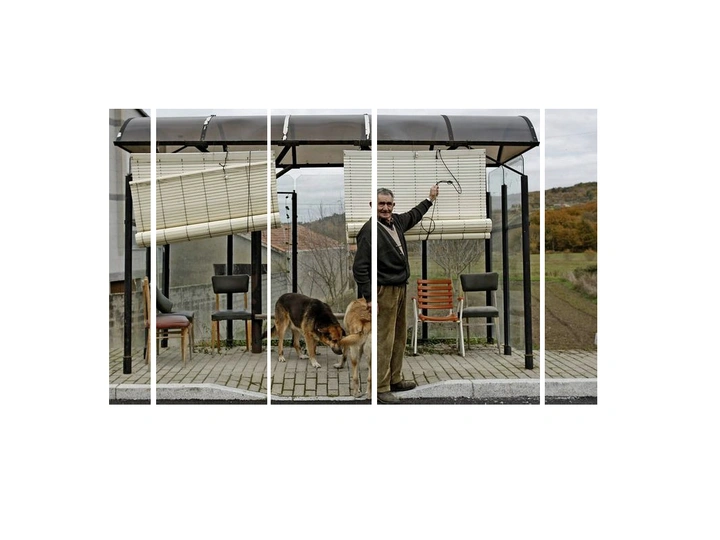The ecology of weeds

1983 Madrid. Architect ETSAM and UDK. Research fellowship in the Master of Performing and Visual Arts (UCLM/MNCARS). Master in Contemporary Art (IL3-UAB). Researcher in ‘Affirmations, debates around possible ecological futures’ (GSAPP.) Collaborates since 2007 with Raumlabor-berlin and Constructlab. Gothenburg National Architecture Award SAVG Architecture in 2015 with the project ‘Bathing Culture’, which was nominated as ‘Best Project Scandinavian Design Award’ .After 15 years between Berlin, Paris, and Brussels, her base actually is in Madrid, where she works in her own studio ‘Maria Dilemas’ realizing projects around temporary architecture, urban installations and cultural practices. She uses the public space as a place of action and her local context as a space for research, production and exhibition. She has curated and participated in national and international cultural programmes with entities such as the European Capital of Culture, Bauhaus Archive, MVRDV, Restart, VK, DidacArt, Espacio Guía, MediaLab Prado, or Matadero. He focuses on fostering local culture through cultural practices and programmes that dialogue with citizens. She researches on collaborative pedagogies in artistic interventions and how to think and redesign the built environment at the intersection of the climatic, the ecological and the social. She has directed 4 collaborative operas which has allowed her to specialise in methodologies that focus on narratives in public spaces. She was co-director of "Parkakademie:" Lab for Urban Experiments and Urban Rehabilitation (Berlin) and Urban Strategy Advisor for Bezirksamt Friedrichshain-Kreuzberg. She is part of a community art and ecology project "EPA"where she aims to create a learning space where we can coexist, create, communicate and build together. He also works with illustration as a tool to describe improvised and complex situations in cities, several of which have been exhibited at the Venice Biennale.
My practice arises as a response to the urgent need for transformation in a global context characterised by crisis and environmental degradation. It proposes the creation of ‘infomal play teams’, spaces that promote interdisciplinary collaboration and the exploration of new ways of inhabiting the world from an honest ignorance, in which we all place ourselves at the same level of knowledge. These laboratories are inspired by the concept of ‘weeds’, reinterpreting them as symbols of resilience and adaptability in living and cultural systems. In this way, the traditional perception of these plants as invasive is challenged and they are recognised as opportunities to rethink the relationship between the spontaneous and the planned in urban environments.
The research process is conceived as an open and receptive journey, in which the absence of a preconceived thesis and unexpected results allow new knowledge and perspectives to emerge. Its success lies in its capacity to generate innovative situations and its impact on citizen awareness, fostering critical thinking and citizen empowerment. Uncertainty and improvisation are adopted as essential tools to address contemporary challenges, challenging hierarchical structures in favour of a more anarchical and collaborative approach.
From this perspective, various forms of creative expression (operas, illustrations, exhibitions) are explored, with the aim of promoting coexistence between human beings and natural and urban environments. An autonomous and open approach to exploration is proposed, moving away from rigid and hierarchical structures in favour of flexibility and adaptability. Ultimately, the practice seeks to create spaces for dialogue and creation that promote co-evolution between human beings and their environment, thus contributing to the construction of a more sustainable and equitable future. We need such open and permeable practices to relearn how to live and create together.